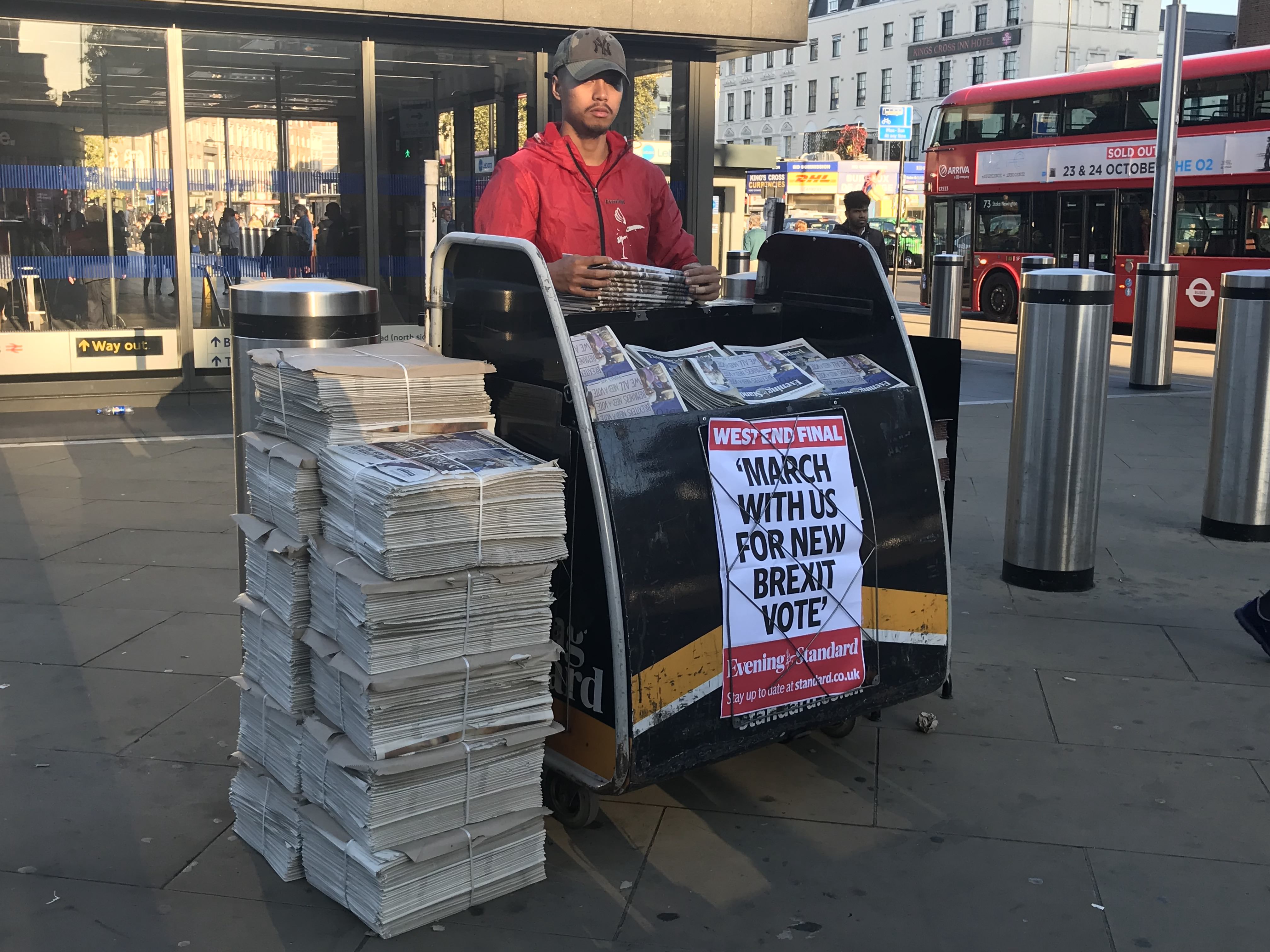
Hannah Kiester
In June of 2016, the United Kingdom voted to leave the European Union, resulting in what was coined “Brexit,” but now the move is no longer guaranteed.
“No deal is better than a bad deal,” Prime Minister Teresa May said of negotiations with the EU on leaving Brexit, but the prolonged debates have caused citizens to become more nervous.
May acknowledged repeatedly that while she is working to avoid a bad deal for the EU, making a deal would be a much better scenario than if the UK cannot make a deal with the EU.
The UK was almost evenly divided on whether they were “for” or “against” Brexit in the original vote in 2016. The winning vote to leave the EU was 51.9% of the votes, while 48.1% were against Brexit.
Since then, Prime Minister Teresa May has been in negotiations with the EU as to the terms of the UK’s departure. In order for any country to leave the EU, they must participate in a two-year period of negotiations with the EU in order to decide the terms of their departure.
Because the EU is a trade agreement that allows goods and services to move more freely between the participating countries, the UK must now negotiate an entirely new trade deal with them in order to participate in trade across most of Europe.
At the moment, two of the biggest points of debate are how to handle the money that the UK owes the EU and how to establish the Northern Ireland border. Another large issue to members of parliament (MPs) is what will happen to the citizens of both the UK and the EU that reside in countries they are not citizens of.
While the UK was part of the EU, many citizens from other EU-participating countries were able to live and work in the UK with relative ease because they were all under the EU. Under Brexit, EU citizens that have been living and working in the UK will have to either apply for the right to remain in the UK or they will have to leave.
Citizens of the UK will also have to get new passports. Under the EU, citizens had red passports that indicated that they were members of the European Union, which allowed them more freedom to travel between other EU countries. Now, they will have to be issued new passportsspeci c to the United Kingdom, whichrestricts some of their previous freedom and ease of traveling in Europe.
Negotiations such as these on how trade, travel, and security will work post-Brexit are currently being held. EU officials and Teresa May hope to reach an agreement by mid-November of this year so that Brexit can proceed on schedule. Now, there are further obstacles in the form of disagreements in Parliament in how to proceed with negotiations.
“It’s very clear really: it is a British problem rather than one on the European side,” British leader of the Liberal Democrat party, Sir Vince Cable said.
The United Kingdom originally wanted to leave the EU, for one, because under the EU, they could not enter into their own trade agreements with other countries, and they were subject to the free movement of people in and out of their borders. With Brexit, they will gain more control over their own trade, as well as how many people are able to enter and exit the UK.
With delayed negotiations, those who are anti-Brexit have been increasing their protests and calling for a People’s Vote. With a People’s Vote, the citizens are demanding that the government call for a second referendum (or vote) in which they can decide whether or not to proceed with Brexit.
The platform of anti-Brexiters came to a head Saturday, Oct 20, when nearly 700,000 people gathered in a People’s March that ended in Parliament Square. The event has also been called “The Independent March for the Future.”
Marchers carried signs re ecting theiranti-Brexit views, and many wore stickers reading “Bollocks to Brexit.”
The crowd that participated consisted of multiple groups that crossed all political parties. They drew up a petition, which has so far gained over 320,000 signatures, and their goal is 350,000.
“We have watched the chaos unfold in cabinet and the turmoil in negotiations with dismay and foreboding. None of us voted for a bad deal or no deal that would wreck our economy,” read the petition.
As of now, May has banned another vote on Brexit, but she is advocating for an extension on the negotiation period if they cannot reach a deal by the desired mid-November date. Her anti-People’s Vote attitude is being cautioned against by members of Parliament.
“Voters will neither forgive nor forget if [the lawmakers allowed] this miserable Brexit to proceed without people beinggiven the nal say,” Labor Party memberof the House of Lords, Andrew Adonis said.
As November comes closer, international eyes are focused on the dealings between the UK and the EU to see if a decision will be reached, an extension will be called, or if the people will be given the vote they demand of their government.